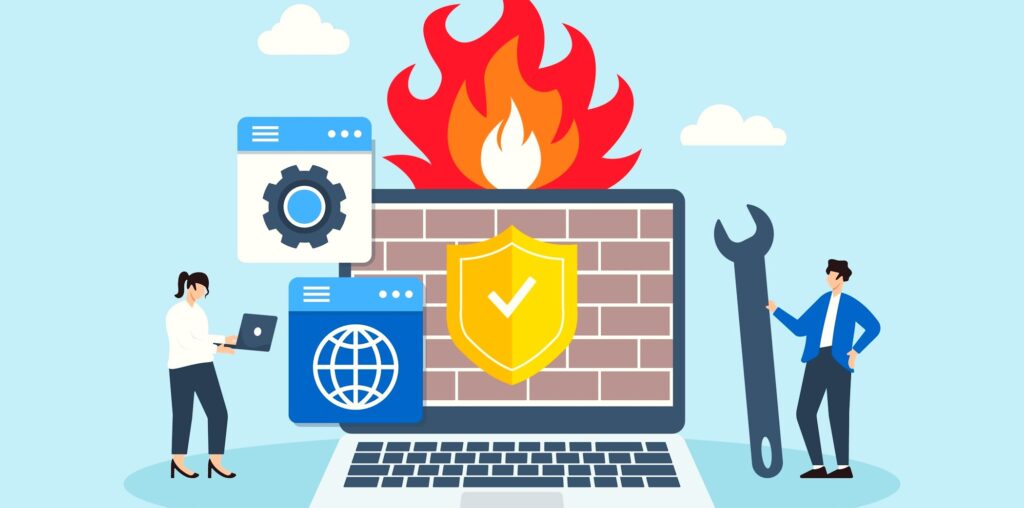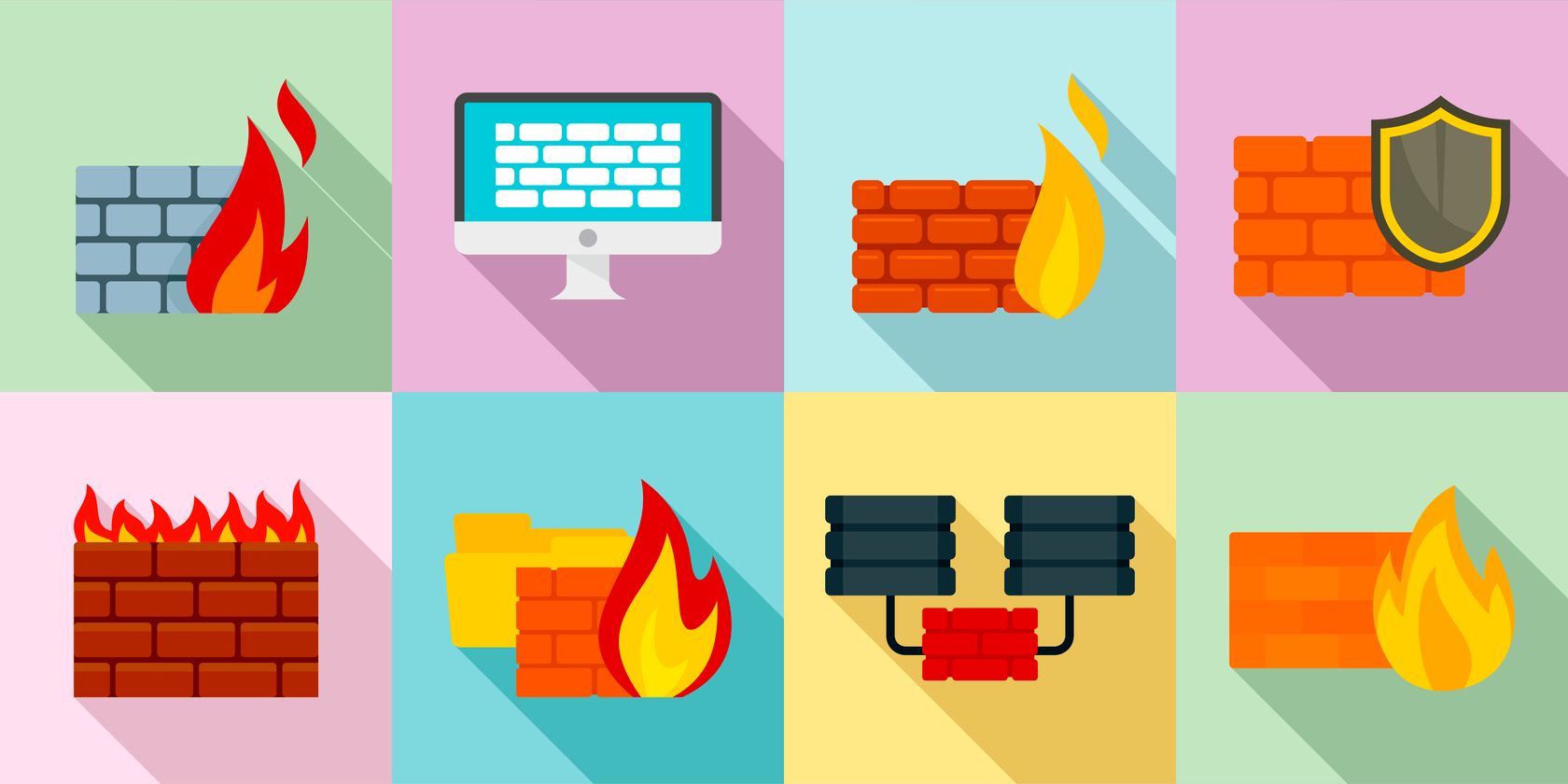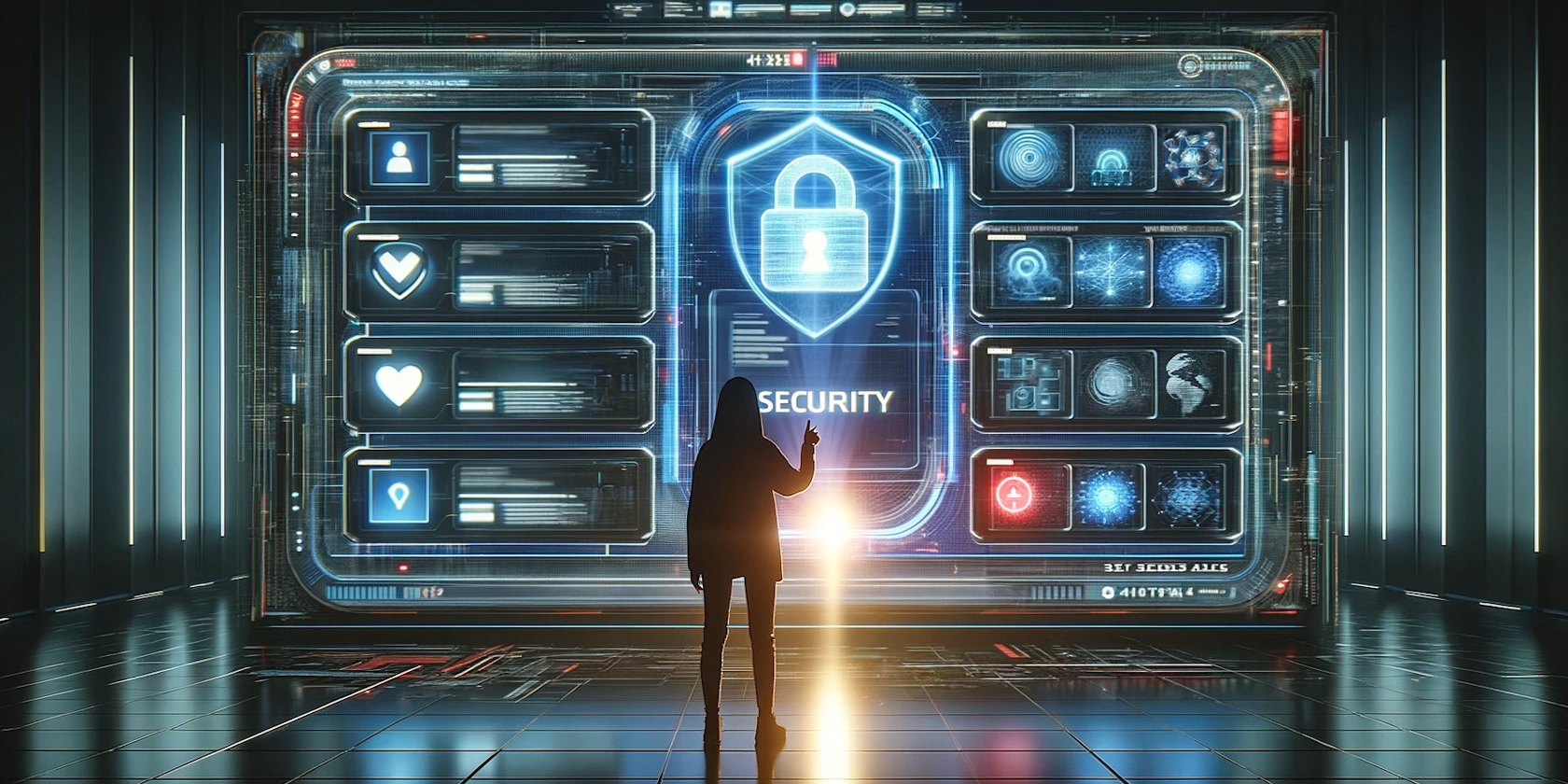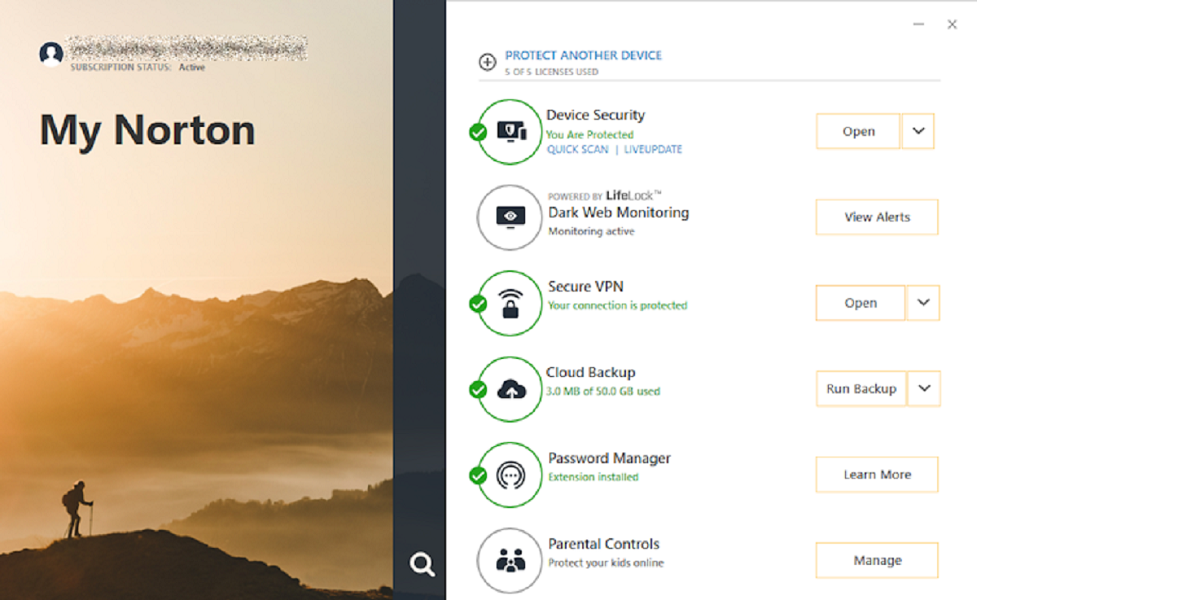Key Takeaways
- VPNs encrypt data for privacy, while firewalls actively monitor and block harmful traffic.
- VPNs cannot protect against all threats like malware, phishing, or tracking.
- Using both a VPN and firewall provides better security by combining privacy with active threat monitoring.
Using a VPN alone won’t fully protect you online. Understanding how VPNs and firewalls differ and why using them together offers better security will help keep you safe.
What’s the Difference Between a VPN and a Firewall?
VPNs and firewalls both enhance security, but they do so in different ways. A VPN encrypts your internet connection, masking your IP address and shielding your online activity from prying eyes like Internet Service Providers (ISPs). Think of it as adding a layer of privacy, especially when using public Wi-Fi.
In contrast, a firewall acts as a gatekeeper for incoming and outgoing traffic on your network, deciding what gets in and out. While VPNs protect data in transit, firewalls actively monitor and block potentially harmful traffic, defending your device from malware, phishing attacks, and other threats that VPNs alone can’t address.
Why a VPN Alone Isn’t Enough for Complete Security
Think a VPN alone makes you invisible? Think again. Although VPNs provide valuable protection by encrypting your data, they don’t offer complete anonymity or guard against all threats. Websites can still track you through cookies, browser fingerprinting, and other methods, even if your IP is hidden. And if your VPN provider logs any of your activity, that data could still be at risk if accessed or subpoenaed.
VPNs also cannot protect against malware or phishing attacks, among the most common cybersecurity threats. While a VPN can secure data on a public network, it lacks the functionality to identify or block malicious links and downloads.
How Firewalls Protect You Where VPNs Can’t
Ever wonder how firewalls keep you safe online? While a VPN is all about privacy, a firewall takes a more active role; it’s constantly on the lookout for any suspicious data trying to get through. By blocking unauthorized access, a firewall can keep malware, phishing attempts, and other cyber threats at bay before they even reach your system.
Personally, I use Norton 360, which includes both a VPN and a Smart Firewall. The VPN encrypts my internet connection, keeping my data private, while Norton’s Smart Firewall actively monitors and blocks any unwanted or suspicious traffic. Together, they create a stronger shield, protecting my online activity from prying eyes and defending against potential cyber threats. For most users, this combination offers a convenient and effective way to enhance privacy and security.
Why You Need Both a VPN and a Firewall
The truth is, for the best security, it’s smart to use both a VPN and a firewall. A VPN hides your online activity and protects data as it’s transmitted, while a firewall actively filters what enters and exits your network. Together, they cover more ground, giving you a stronger shield against a range of threats.




